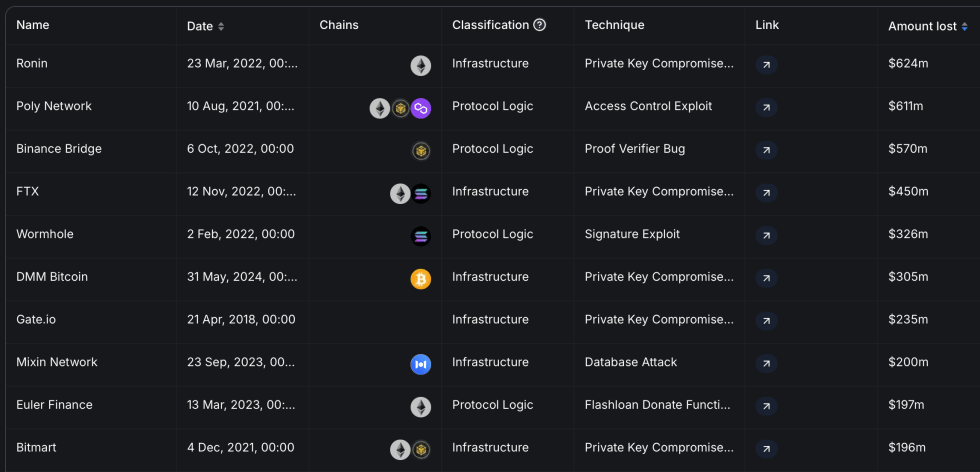The Norwegian government has succeeded frozen and returned $5.7 million related to a high-profile cyberattack on the Ronin network, an Ethereum sidechain integral to the web3 game Axie Infinity.
This action highlights a growing international commitment to combating cybercrime, even in the area of cryptocurrencies. The funds were recovered as part of a collaborative effort involving various law enforcement and forensic entities.
Ronin Hack: international collaboration in cybersecurity
The Ronin network had suffered an exploit in March 2022resulting in a loss of over $600 million, the largest DeFi exploit to date.
This incident was attributed to the famous Lazarus group, which is believed to be associated with North Korea. The successful recovery of stolen assets was facilitated by the Norwegian National Economic and Environmental Crime Investigation and Prosecution Authority (Økokrim).
The operation was a concerted effort that also included contributions from the FBI in the United States and various blockchain forensic companies like Chainalysis.
Today we received exciting news from the Norwegian government and Økokrim.
The Norwegian National Authority for the Investigation and Prosecution of Economic and Environmental Crime (Økokrim) has successfully frozen and returned $5.7 million in assets stolen from the Ronin Bridge…
– Sky Mavis (@SkyMavisHQ) June 7, 2024
Sky Mavis, the developers behind Axie Infinity, expressed their gratitude to the organizations involved. They confirmed that although 15% of funds recovered would cover operational expenses, the remainder would be returned to Axie Infinity’s treasury, ensuring continued support and compensation to relevant stakeholders.
The game developer further confirmed that law enforcement authorities have currently frozen an additional $40 million in assets related to the case.
They noted that the process of recovering these funds would take an indefinite amount of time and therefore a precise timetable for their return could not be provided at this time.
Current Change in Cryptocurrency Security
Ronin’s feat remains a stark reminder of vulnerabilities within decentralized financial platforms. This involved the compromise of five out of nine validator private keys, allowing the attacker to execute fraudulent transactions.
This incident is the largest ever recorded crypto heist up to date since the hack resulted in a loss of approximately $624 million, according to data by DeFillama.

At the same time, current trends indicate a shift in attack vectors, with cybercriminals now targeting less secure elements such as private key management.
According to the latest HackHub report According to Merkle Science, losses due to smart contract vulnerabilities have decreased significantly due to improved security tools, but losses due to private key leaks have increased.
Featured image created with DALL-E, chart from TradingView


